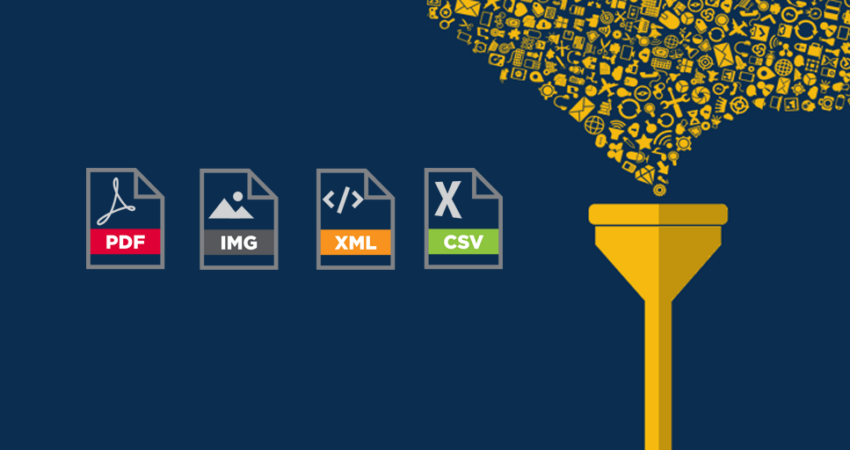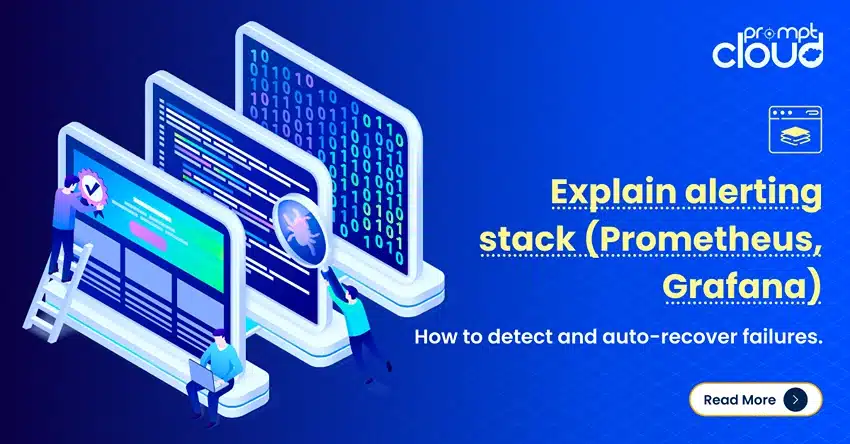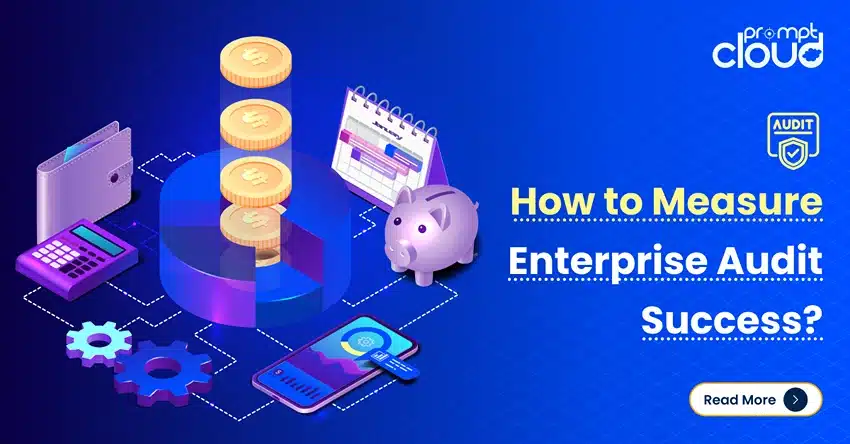
**TL;DR**
When it comes to data delivery, the format you choose is not just a technical detail — it’s the bridge between insight and execution. A CSV might get your data there fast, but a Parquet file will keep it lean and scalable. XML can describe every layer of structure, while JSON handles nested data beautifully for APIs. Choosing right means faster workflows, cleaner integrations, and fewer headaches. This article breaks down the pros and cons of common data delivery formats like CSV, JSON, XML, Parquet, Excel, and HTML so you can pick what truly fits your system and scale.
Why Data Delivery Formats Matter
Every business wants clean, structured data — but what happens after extraction often determines whether that data is useful or just another file on a server. The data delivery format decides how well your information flows into downstream systems, dashboards, and machine learning pipelines.
Imagine extracting millions of product listings, only to receive them in a format your tools can’t parse. You’ll spend more time converting and cleaning than analyzing. The right file format, on the other hand, can shave hours off ETL time, reduce storage costs, and prevent version control issues.
The choice usually depends on:
- The volume and velocity of data being delivered
- The systems and tools your team already uses
- The trade-off between readability, scalability, and processing speed
Let’s look at each format closely to see where it fits best.
CSV (Comma-Separated Values)
If there’s one file format that has stood the test of time, it’s CSV. It’s simple, lightweight, and supported everywhere — from Excel sheets to SQL imports.
Pros:
- Simplicity: Just rows and columns, easy to read and share.
- Compatibility: Works with almost every analytics, BI, or spreadsheet tool.
- Efficiency: Small file sizes make it ideal for quick delivery and bulk uploads.
Cons:
- Limited structure: Flat, two-dimensional data only.
- No metadata: You’ll need external documentation for context or schema.
- Error-prone: Special characters and commas can break fields.
Best use case:
CSV is best for transactional or tabular data — think pricing tables, product inventories, or survey responses.
If you want to understand how web scraping can be implemented responsibly and at scale for your industry, you can schedule a Demo to discuss your use case and data requirements.
JSON (JavaScript Object Notation)
If CSV is a simple table, JSON is a flexible map. It handles complex, nested structures and is the go-to choice for modern APIs and real-time web data delivery.
Pros:
- Flexible: Perfect for hierarchical or nested data.
- Readable: Easy for both humans and machines to understand.
- API-friendly: Native to most web and cloud systems.
Cons:
- Larger size: Its readable syntax makes files heavier.
- Parsing overhead: Requires specialized libraries for transformation.
Best use case:
JSON is ideal when your data mirrors real-world structures, such as user profiles, product attributes, or event logs.
XML (eXtensible Markup Language)
XML isn’t trendy, but it’s still everywhere. From healthcare systems to government registries, XML’s descriptive nature and validation support make it indispensable in regulated environments.
Pros:
- Rich metadata: Schema-based design makes it self-documenting.
- Standardized: Recognized in legacy systems across industries.
- Hierarchical: Handles deeply nested relationships easily.
Cons:
- Verbose: Heavy tagging inflates file size and slows processing.
- Complex parsing: Requires more computation and configuration.
Best use case:
XML suits data exchange between enterprise systems that rely on formal schemas — like banking, insurance, or logistics applications.
Parquet
In the big data world, Parquet is the gold standard. It’s built for performance, compression, and large-scale analytics.
Pros:
- Columnar storage: Makes queries faster, especially for selective reads.
- Highly compressed: Efficient in storage and network transfer.
- Analytics-ready: Perfect for big data stacks like Spark or Snowflake.
Cons:
- Not human-readable: Needs compatible software to interpret.
- Limited tool support: Not all BI platforms natively open Parquet.
Best use case:
If your data delivery involves multi-gigabyte files or warehouse ingestion, Parquet delivers maximum speed and minimal storage footprint.
At PromptCloud, many enterprise clients use Parquet for continuous feeds from large marketplaces or travel platforms. It ensures every crawl cycle produces structured, query-ready datasets without overloading infrastructure.
Excel (XLS/XLSX)
Excel might seem basic, but it’s still the lingua franca of business reporting.
Pros:
- User-friendly: Easy to open, edit, and visualize.
- Rich features: Charts, pivot tables, and formulas built-in.
- Universally accepted: Ideal for reports and quick sharing.
Cons:
- Scalability limits: Struggles with large datasets.
- Prone to manual errors: Especially in shared editing environments.
Best use case:
Excel fits internal reviews, stakeholder reports, and quick summaries that don’t need automation or complex querying.
HTML and Web Formats
HTML isn’t a data format in the traditional sense, but it’s valuable when context matters.
Pros:
- Retains structure: Preserves layout and context from websites.
- Customizable: Allows selective scraping and delivery.
Cons:
- Unstructured: Requires parsing to extract useful data.
- Limited utility: Harder to integrate into automated workflows.
Best use case:
Ideal for web scraping outputs where structure, context, or formatting provides additional value — like capturing product descriptions with embedded visuals or blog metadata.
Emerging Trends in Data Delivery
The landscape of data delivery is shifting fast. What once relied on FTP transfers or static downloads is now being replaced by streaming APIs, push-based feeds, and direct-to-warehouse integrations. The goal is no longer just to deliver data — it’s to keep it alive, fresh, and context-aware.
1. API-First Delivery
Modern companies increasingly prefer continuous API endpoints over periodic dumps. APIs deliver smaller packets of data at higher frequency, ensuring that analytics dashboards and AI models remain up to date. This approach cuts lag between collection and decision-making while keeping bandwidth costs predictable.
2. Cloud-Native Pipelines
Cloud ecosystems like AWS, Azure, and GCP have changed how data moves. Instead of downloading files, teams now connect their storage buckets directly to data streams. Formats like Parquet or ORC work seamlessly within this environment, allowing users to query data on demand rather than waiting for full transfers.
3. Real-Time Validation
Data delivery is also becoming smarter. Each batch now carries automated checks for schema consistency, missing fields, or duplication. These built-in validations mean clients receive cleaner, production-ready data without manual QA.
4. Versioning and Lineage Tracking
Knowing where your data originated — and when — is now a compliance requirement. Delivery frameworks include lineage metadata that shows which crawl, rule, or timestamp generated each file. This visibility is critical for enterprises operating under audit or regulatory scrutiny.
Why it matters:
These innovations turn delivery from a static process into a continuous data lifecycle. You no longer “receive data”; you stay connected to it.
Security, Compliance, and the Future of Ethical Data Delivery
As data becomes more distributed, security and compliance move from checkbox to differentiator. Delivering data safely isn’t only about encryption; it’s about trust, transparency, and governance.
1. Encryption by Default
Modern data delivery systems use end-to-end encryption (both in transit and at rest). This means even if a transfer is intercepted, the information remains unreadable. At PromptCloud, all deliveries use TLS and encrypted storage options by default.
2. Regional Compliance
Different countries impose different rules for how data crosses borders. The EU’s GDPR, California’s CCPA, and India’s DPDP Act each define what counts as safe data movement. Enterprise-grade delivery must account for these constraints automatically — applying pseudonymization, field masking, or localization where required.
3. Access Governance
With more stakeholders touching data — from data scientists to external vendors — access control becomes essential. Role-based permissions, token expiration, and IP whitelisting protect sensitive feeds and ensure data doesn’t end up where it shouldn’t.
4. Ethical Sourcing
Ethics in data delivery goes beyond compliance. It’s about verifying that the source data was collected legally, transparently, and with respect to platform terms. Responsible delivery ensures that the final dataset isn’t just accurate, but defensible.
According to Gartner’s 2025 Guide to Responsible Data Operations, over 60% of global enterprises now include automated compliance verification in their delivery workflows. The trend is clear: transparency and traceability are becoming as important as speed and scale.
The takeaway:
The next phase of data delivery will balance performance with principle. Security and ethics will define which providers businesses trust with their pipelines.
Optimizing Data Delivery for Scale
Once your datasets reach millions of rows or span multiple geographies, your delivery approach can make or break downstream efficiency. A format that worked fine for pilot projects may struggle when gigabytes turn into terabytes. Optimizing data delivery for scale means thinking beyond file types — it’s about orchestration, compression, and cost control.
1. Parallelized Delivery Pipelines
Enterprise data extraction rarely happens sequentially. Instead, multiple crawlers push batches in parallel, often across time zones. Efficient delivery systems chunk and distribute files dynamically so they arrive without bottlenecks. This parallelization ensures faster refresh cycles and minimizes downtime.
2. Incremental Updates Over Full Dumps
Rather than redelivering entire datasets, incremental updates only send what’s changed. This reduces bandwidth consumption, speeds up ingestion, and avoids duplication errors. It’s particularly effective when monitoring fast-moving verticals like retail pricing, travel fares, or social sentiment feeds.
3. Compression and Serialization
Compression formats like GZIP or Snappy make data delivery faster and leaner, cutting file size without losing fidelity. Pairing this with serialization (turning structured data into compact binary) helps high-volume teams move terabytes with minimal network strain.
4. Unified Data Schemas
A consistent schema across multiple delivery formats (e.g., JSON and Parquet) allows teams to swap formats seamlessly without re-engineering their pipelines. Schema standardization means a single data definition applies whether you’re exporting daily, weekly, or real-time.
5. Automated Integrity Checks
Scaled data pipelines often fail silently. Automatic validation ensures that every delivery batch passes checks for completeness, consistency, and timestamp accuracy. The most advanced systems use self-healing scripts that retry partial or corrupted uploads autonomously.
6. Delivery Monitoring Dashboards
For enterprise clients, monitoring data delivery in real time is essential. Dashboards track file arrivals, schema versions, record counts, and error logs, giving visibility across every stage of the pipeline. Instead of discovering delays after analysis, teams know immediately if a feed missed its target.
7. Sustainability and Cost Optimization
Running heavy data operations across regions consumes bandwidth and storage. Smarter throttling, delta-based deliveries, and cloud-native caching reduce both costs and energy footprint. These efficiencies compound quickly when you’re managing hundreds of concurrent feeds.
According to McKinsey’s 2025 Data Infrastructure Outlook, scalable data delivery frameworks can reduce pipeline maintenance costs by up to 35%, largely through automation and compression optimization. For businesses handling large-scale crawling or multi-market monitoring, this efficiency translates directly into competitive advantage.
Comparing Data Delivery Formats Side by Side
Choosing between CSV, JSON, XML, or Parquet often comes down to balancing performance, readability, and integration. No single format wins in every category. To make this easier, here’s a quick comparison that breaks down how each format performs across critical business criteria.
| Format | Structure Type | File Size Efficiency | Ease of Integration | Readability | Best Use Case | Key Limitation |
| CSV | Flat (2D tables) | Excellent for small datasets | Universal (Excel, Python, BI tools) | High | Simple transactional or tabular data | No schema or hierarchy support |
| JSON | Hierarchical (nested) | Moderate; can grow large | Strong (APIs, apps, cloud tools) | Moderate | Web data, APIs, product attributes | Larger files, complex parsing |
| XML | Hierarchical (schema-based) | Poor; very verbose | Good in enterprise systems | Low | Compliance-heavy sectors (finance, healthcare) | High parsing overhead |
| Parquet | Columnar (binary) | Outstanding for big data | Excellent for analytical systems | None (machine-only) | Data warehouses, ML, data lakes | Not human-readable |
| Excel (XLSX) | Flat or lightly structured | Moderate | Strong in business settings | Very high | Small teams, reporting, offline analysis | Limited scalability |
| HTML | Unstructured | Variable | Niche (web extraction) | Moderate | Preserving page context and content structure | Requires heavy preprocessing |
What This Table Tells You
- For simplicity and portability, choose CSV.
It’s lightweight and plays well with nearly every analytics platform, but don’t expect it to handle nested data or metadata. - For API-based workflows or dynamic feeds, use JSON.
JSON integrates seamlessly with modern web architectures and offers flexibility for structured data without the bulk of XML. - For compliance or B2B integration, XML remains relevant.
Despite its verbosity, XML’s ability to embed schema and attributes makes it irreplaceable in legacy and regulated ecosystems. - For high-scale, performance-first environments, go Parquet.
It’s engineered for massive datasets, letting you query billions of records efficiently without bloating cloud costs. - For stakeholder visibility or internal sharing, Excel works best.
It’s not a technical choice but an accessibility one — perfect for reports, summaries, and presentations. - For contextual data preservation, HTML still has value.
Particularly in content scraping, where layout, visuals, and relational cues add analytical meaning.
The Business Impact of Choosing the Right Format
In fast-moving data environments, file format directly impacts turnaround time, cost efficiency, and even decision accuracy. Here’s how:
- Speed to Insight: A 200MB Parquet file can process ten times faster in analytical systems than an equivalent CSV. Faster queries translate into shorter lead times for pricing, forecasting, or sentiment analysis.
- Data Fidelity: Formats with metadata (like XML and JSON) reduce ambiguity. Your analysts don’t have to guess column meanings or units.
- Storage and Cost Efficiency: Compression in Parquet or columnar formats can reduce cloud storage bills by 60–80% without sacrificing granularity.
- Collaboration and Transparency: Readable formats like Excel or CSV promote cross-functional alignment between data engineers and non-technical business teams.
Forward-looking organizations don’t just standardize on one format — they build multi-format data delivery frameworks. That means using JSON for APIs, Parquet for warehouses, and CSV for stakeholder-facing exports.
This flexibility keeps data accessible across use cases while maintaining performance where it matters.
According to a 2025 Deloitte study on Modern Data Operations, over 75% of enterprises that adopted hybrid data delivery strategies (mixing multiple formats per use case) reported faster integration and lower reprocessing costs compared to those using a single standardized format.
The lesson is simple: your format choice should evolve with your workflow maturity. Start simple, optimize as you scale, and make sure your delivery partner supports every transition seamlessly.
How PromptCloud Handles Data Delivery
Every dataset is unique, and so is the way it needs to be delivered. At PromptCloud, our goal is to ensure that your data arrives in the format that fits seamlessly into your workflow — not the other way around.
1. Tailored Formats
You choose the format. Whether it’s CSV for simplicity, JSON for structure, XML for compliance, or Parquet for analytics, we deliver clean and structured datasets that integrate instantly.
2. Schema Documentation and Metadata
We don’t just deliver data; we make it ready for production. Each dataset includes schema documentation, field-level mapping, and consistent identifiers to make ingestion effortless.
3. Scalable and Secure Delivery
Our infrastructure supports S3, FTP, and API-based delivery at scale, ensuring speed, accuracy, and uptime even for multi-gigabyte feeds.
4. Compliance by Design
We follow data protection standards like GDPR and CCPA while ensuring that all data delivery processes remain transparent and auditable.
Choosing the Right Format for Your Needs
The best file format depends on your priorities — speed, structure, storage, or simplicity. CSV is universal, JSON is flexible, XML is descriptive, and Parquet is performance-driven.
A simple rule of thumb:
- Choose CSV or Excel if readability and manual use matter most.
- Choose JSON or XML when your workflows involve APIs or hierarchical structures.
- Choose Parquet when scale, compression, and analytical speed are critical.
PromptCloud’s team helps you decide and test delivery modes before full deployment, ensuring your pipelines stay efficient from day one.
Conclusion
Choosing the right data delivery format is about more than technical compatibility — it’s about efficiency, collaboration, and long-term scalability. Whether your datasets feed dashboards, AI models, or decision engines, every byte should move smoothly from extraction to insight.
PromptCloud’s customizable data delivery ensures that every dataset fits your goals — structured, documented, and ready to plug in. Because when data arrives clean and usable, it stops being a task and starts being a tool.
If You Want to Know More, Read These
1. Best GeoSurf Alternatives 2025
A comprehensive guide comparing top proxy management platforms, including key differences in reliability, region coverage, and pricing for scalable web scraping operations.
2. Google AdWords Competitor Analysis with Web Scraping
Learn how web data can uncover your competitors’ ad strategies, keyword spends, and campaign focus areas to strengthen your marketing decisions.
3. JSON vs CSV for Web Crawled Data
Dive deeper into how JSON and CSV perform under different use cases, including API feeds, ETL automation, and analytics integration.
4. Market Sentiment Web Scraping
Understand how sentiment data from reviews, social platforms, and forums can drive predictive analytics for brands and investment strategies.
Ready to simplify your data workflows
If you want to understand how web scraping can be implemented responsibly and at scale for your industry, you can schedule a Demo to discuss your use case and data requirements.
Frequently Asked Questions
1. What is the best file format for data delivery?
There’s no universal “best” format. CSV is simple and compatible, JSON suits APIs, XML fits compliance-heavy systems, and Parquet excels at big data analytics. The ideal choice depends on your scale, use case, and downstream tools.
2. How does PromptCloud customize data delivery for clients?
PromptCloud tailors delivery to each client’s technical environment. You can specify format (CSV, JSON, XML, Parquet), structure, schema, delivery cadence, and preferred channels like API, FTP, or S3.
3. Can I change my delivery format after deployment?
Yes. Most PromptCloud clients switch formats as their analytics stack evolves. We maintain schema consistency across formats, so migrations don’t disrupt existing workflows.
4. How secure are PromptCloud’s data delivery pipelines?
All transfers are encrypted in transit and at rest. Access is controlled through tokenized authentication, IP whitelisting, and region-specific compliance standards like GDPR and CCPA.
5. Why is data delivery important in web scraping?
Because even perfectly scraped data is useless if it doesn’t reach your system cleanly. Efficient delivery formats reduce post-processing, ensure integration readiness, and preserve quality from crawl to analysis.



















